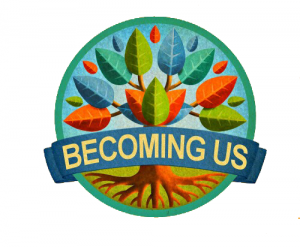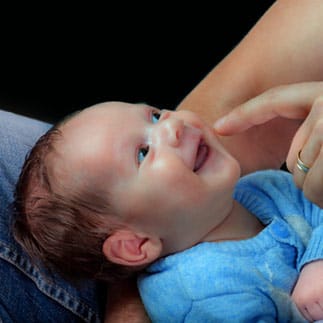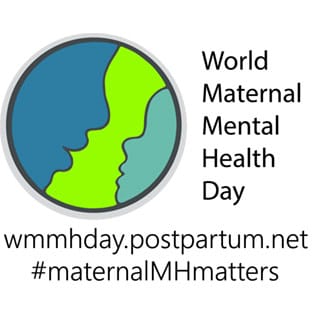As this Mental Health Awareness Week (16-22 May 2016) winds down, I felt compelled by this year’s emphasis on ‘relationships’ to write about the importance of strengthening partner relationships in the transition to parenthood. Although I have worked with couples in a variety of formats over many years – birth and parent preparation, The Birth Empowerment Workshop®, and relationship counselling and therapy – I have recently become a Certified Becoming Us™ Facilitator, which has really upped my game for helping couples navigate the transition as they grow from partners into parents. This is often a time of great turbulence for couples, and the good news is there are positive strategies that can be put into place to protect the bond between partners while creating a strong family foundation and resilient mental health.
Rite of Passage
Elly Taylor wrote Becoming Us: 8 Steps to Grow a Family that Thrives to inspire couples making the transition to parenthood. As a relationship counsellor she was aware that the birth of the first child often sent couples into a tailspin of disillusionment, disappointment and frustration as unrealistic expectations and massive identity changes interface with the natural anxieties of a new stage in life. Taylor and I share the view that parenthood is a rite of passage that takes us from one stage in life to another, and all rites of passage encompass 3 stages with similar names – separation/severance, transition/threshold, and incorporation/integration. Separation happens when we move away from the old familiar stage of life, and this often involves a temporary severance of the ties to normal life and the people in it. The second stage of transition or threshold marks the time in between states, involving something of a trial, a time of becoming – no longer connected to the old, but not yet established in the new. The third stage of incorporation is when the person is re-integrated back into the community with the new elevated status that comes from the wisdom and knowledge gained while in the transitional stage. When we acknowledge how becoming a parent is a natural rite of passage, it gives us a template for what to expect and how it will change our identity in predictable ways. This reduces the experience of disillusionment, disappointment and anxiety about the transformation unfolding and puts things into perspective.
Relationship Stress and Perinatal Mental Illness
Based on her book, Elly Taylor created a pioneering programme for training facilitators in her model of relationship preparation for parenthood. I am excited to have been part of the inaugural training to become a Certified Becoming Us™ Facilitator, to assist couples steer through the parenthood journey while preserving the connection between them. There is an extensive literature on the links between perinatal mental illness and relationship stress. In this article I share some of the research that examines the role that adult attachment plays in perinatal mood and anxiety disorders, and the value of strengthening the couple relationship to reduce the risk of developing these illnesses. When either partner does not feel supported, there is an increased risk of descending into depression, and this applies to both mothers and fathers/partners. 1 in 7 mothers will develop perinatal depression and 1 in 10 fathers will. However, 33% of mothers and 17% of fathers will experience anxiety in the perinatal period. The ability to work as a duet during pregnancy, birth and the postnatal period, grounded in evidence based strategies and procedures, reduces anxiety and depression and increases feelings of love and attachment within the relationship. The couple’s relationship is a key stabilizer in the family.
Pre-parenting Work with Couples
John Gottman, a world renowned relationship expert and researcher, found that 67% of couples had experienced a decline in marital satisfaction during the first three years of their baby’s life. Other researchers, Cowan and Cowan (1992), found that 92% of couples experience increased conflict in the first year after a baby is born. Although these statistics are sobering, Gottman also found that just two relationship sessions in preparing for parenthood could reduce mental illness by 60%. This is the pre-parenting work that I am now doing with couples to fortify them against becoming another statistic in relationship breakdown, and to eradicate the atmosphere that can result in perinatal mood and anxiety disorders. When couples know that the intense feelings they are experiencing are normal and common, they have no fear that there is something wrong with them. They are prepared for the normal conflicts that arise and what they can do to support each other and move closer rather than further apart. The transition to parenthood is ripe for more secure partner bonding, and the relationship coaching that I am offering is an ideal curriculum for couples to grow together as they launch their new family. Soon there will be a series of prenatal classes that I will be teaching based on the Becoming Us™ model.
Filling the Gap in Preparation for Parenthood
Preparing for parenthood is something that is often overlooked during prenatal/antenatal classes. To avoid turning the stress of new parenthood into distress, we need to fill that gap with relationship strengthening knowledge that couples can use as they move through the transition(s) that change them in so many ways. The 8 steps that Taylor has included in her model helps couples prepare physically, mentally, and emotionally for the next stage in their life as a family. The intention is that with more understanding of the normal challenges that parenthood creates, the incidence of perinatal mood and anxiety disorders will decrease, and families can provide the optimal environment for children to grow in and fulfil their potential in life.
For more information, please feel free to contact me at diane@dianespeier.com .
References:
Elly Taylor (2014) Becoming Us: 8 Steps to Grow a Family That Thrives, Sydney, Australia, Three Turtles Press.
Carolyn Pape Cowan & Philip A Cowan (1992) When Partners Become Parents: The Big Life Change for Couples, New York, Basic Books.
Speier, Diane S (2015) ‘Strengthening couple relationships to reduce the risk of perinatal mood and anxiety disorders for parents’, Journal of Health Visiting, Volume 3, Number 3, pp. 160-165.
John M Gottman & Julie S Gottman (2007) And Baby Makes Three: The Six-Step Plan for Preserving Marital Intimacy and Rekindling Romance After Baby Arrives, New York, Three Rivers Press.

I hope you have enjoyed this post. Use the search bar below to find other interesting content on this site.
Post Categories








